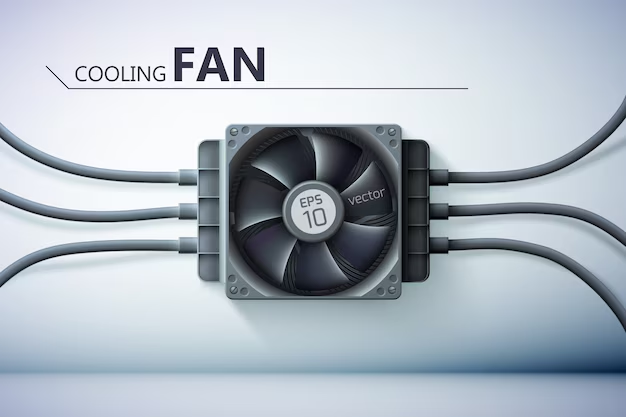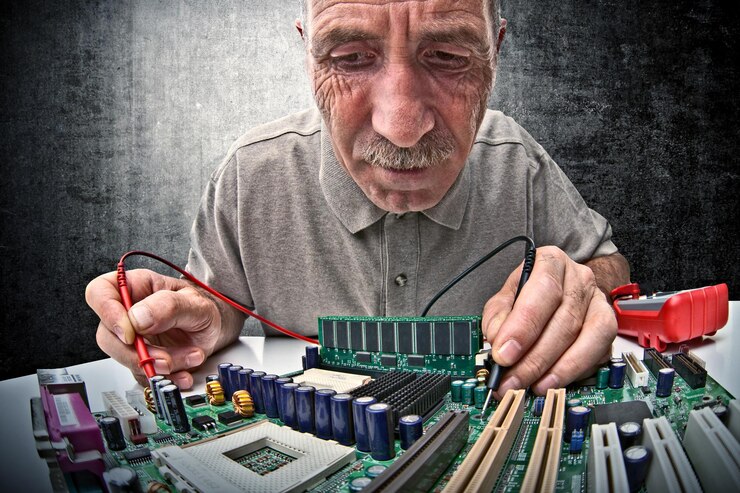Introduction
Gaming is all about performance, but what happens when your CPU starts heating up? If you’ve ever wondered, How hot should your CPU get during intense gaming?, you’re not alone. High-end games push your processor to its limits, generating heat that can impact both performance and longevity. This article explains the ideal CPU temperature range, why your processor heats up, and how to prevent overheating so you can enjoy smooth, uninterrupted gaming.
Why Does Your CPU Heat Up During Gaming?
When you play CPU-intensive games, your processor works harder than usual. Here’s why gaming increases CPU temperature:
- Demanding Graphics and Physics: High-resolution graphics and complex physics calculations require immense processing power.
- Heavy Workload: The more tasks your CPU handles, the more heat it generates.
- Cooling System Efficiency: Your CPU cooler plays a crucial role in maintaining optimal temperatures.
- Ambient Room Temperature: A hot environment means your CPU will also run hotter.
- Case Airflow: Poor airflow can trap heat inside your PC, leading to higher CPU temperatures.
Safe CPU Temperature Ranges for Gaming
Maintaining a safe CPU temperature is crucial for preventing performance issues and hardware damage. Here’s a general guide:
- Optimal Range: 60-75°C (140-167°F) – Ideal for intense gaming sessions.
- Moderate Range: 75-80°C (167-176°F) – Still safe, but prolonged exposure isn’t recommended.
- Caution Zone: 80-90°C (176-194°F) – Your CPU is overheating; action is needed.
- Danger Zone: Above 90°C (194°F) – Risk of thermal throttling and potential long-term damage.
Factors That Contribute to CPU Overheating
Several factors influence CPU temperature during gaming:
1. Game Settings
Higher graphics settings and resolutions push the CPU harder, generating more heat.
2. Background Applications
Running multiple applications while gaming increases CPU load and temperature.
3. Overclocking
Overclocking boosts CPU performance but significantly increases heat output.
4. Thermal Paste Condition
Old or poorly applied thermal paste reduces heat dissipation efficiency.
5. Cooling System Type
Air coolers and liquid coolers differ in performance, affecting how well your CPU stays cool.
6. Case Ventilation
Proper airflow prevents heat from accumulating inside your computer case.

Signs Your CPU Is Overheating
If your CPU is running too hot, you may notice these symptoms:
- Sudden Frame Rate Drops: Games become laggy due to thermal throttling.
- System Crashes or Freezes: Overheating can cause instability.
- Loud Cooling Fans: Your CPU fans work harder to dissipate heat.
- Reduced Performance: The CPU slows down to prevent damage.
- High Temperatures in Monitoring Tools: Software like HWMonitor or Core Temp shows excessive temperatures.
How to Keep Your CPU Cool While Gaming
To prevent overheating and maintain top performance, follow these tips:
1. Upgrade Your CPU Cooler
Consider a high-performance air cooler or an AIO (all-in-one) liquid cooler for better heat dissipation.
2. Improve Case Airflow
Install additional case fans to enhance ventilation and reduce internal heat.
3. Lower In-Game Graphics Settings
Reducing graphics quality, shadows, and anti-aliasing can ease CPU strain.
4. Close Unnecessary Background Applications
Shut down apps like browsers, streaming services, and unnecessary software while gaming.
5. Reapply High-Quality Thermal Paste
If your CPU temperatures are unusually high, consider reapplying fresh thermal paste.
6. Adjust Overclocking Settings
If you’ve overclocked your CPU, reduce clock speeds to minimize heat output.
7. Clean Your PC Regularly
Dust buildup can clog fans and reduce airflow. Clean your PC every 3-6 months.
8. Monitor CPU Temperatures
Use software like MSI Afterburner, Core Temp, or HWMonitor to track CPU temperatures in real time.
FAQs About CPU Temperature While Gaming
1. What is a safe temperature for my CPU during gaming?
- Ideally, 60-75°C (140-167°F) is the best range for long gaming sessions.
2. Can high CPU temperatures damage my processor?
- Yes, prolonged exposure to high temperatures can degrade CPU lifespan and performance.
3. How often should I clean my PC to prevent overheating?
- Clean dust buildup every 3-6 months for optimal airflow and cooling.
4. Is liquid cooling better than air cooling?
- Liquid cooling is generally more effective for high-performance systems, but a high-quality air cooler can also be sufficient.
5. Does overclocking increase CPU temperature?
- Yes, overclocking forces the CPU to run at higher speeds, generating more heat.
Conclusion
Understanding “how hot should CPU be when playing CPU-intensive games” helps protect your hardware and maintain optimal gaming performance. Keeping an eye on your CPU temperatures, upgrading your cooling system, and optimizing game settings can prevent overheating issues. By following these best practices, you can ensure a smooth and enjoyable gaming experience without compromising your PC’s health.




